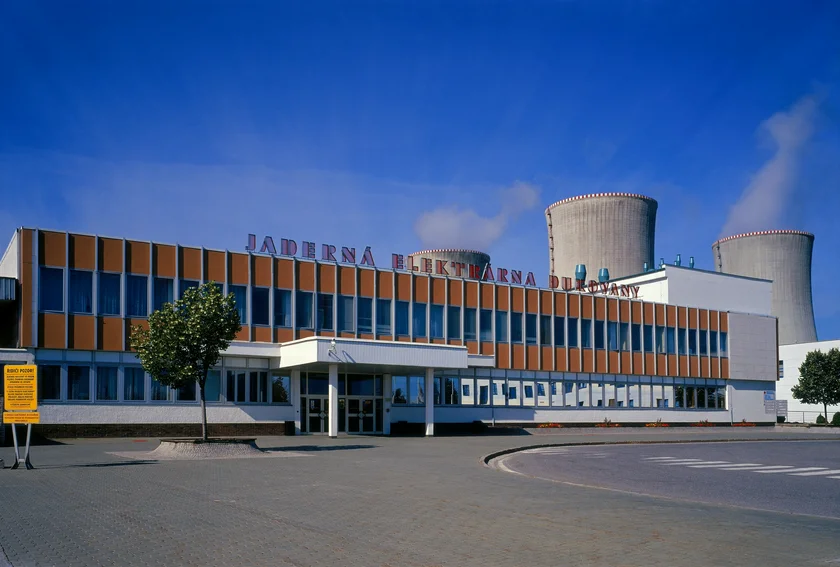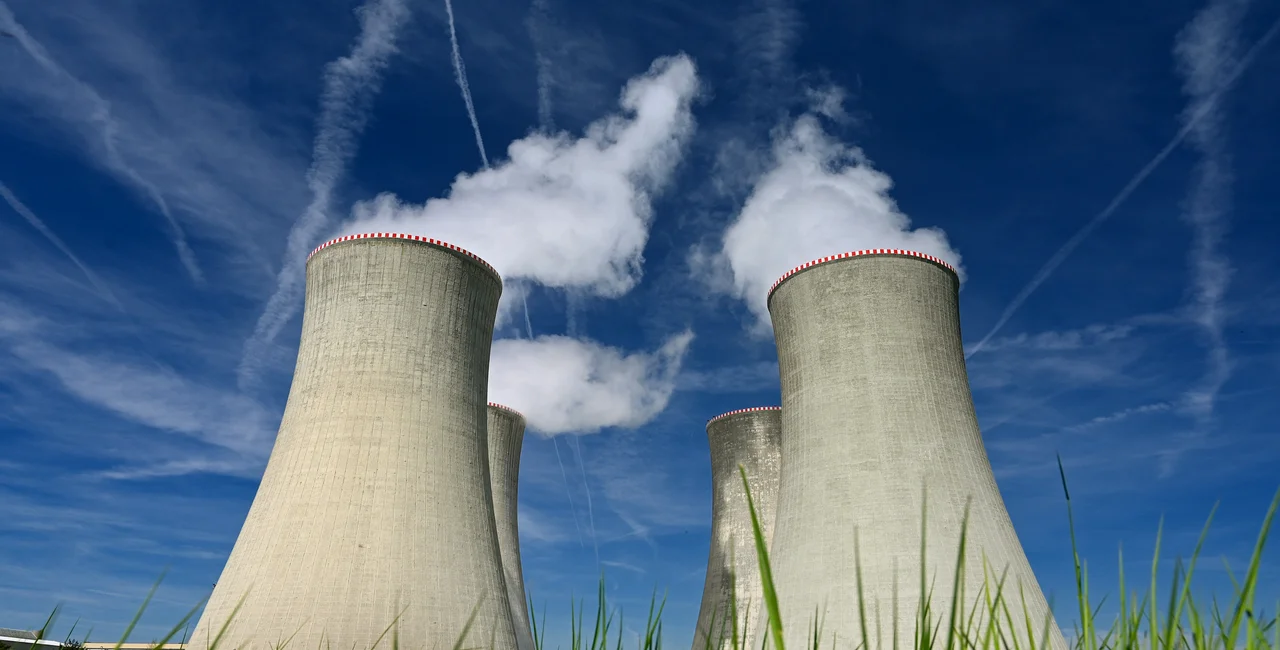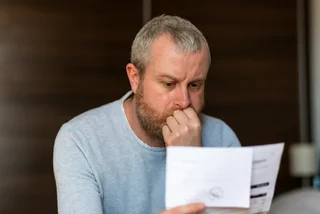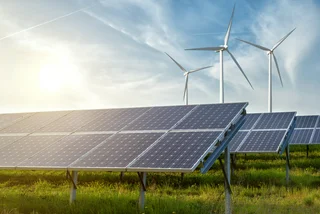While many countries have been moving away from nuclear energy, Czechia is planning for nuclear power to contribute about 60 percent of newly constructed energy sources. The country also is hoping its nuclear industries will play a big role in Europe’s growing energy sector.
The Ministry of Industry and Trade Jozef Síkela said he wants Czechia to become a leader in nuclear energy. He promoted Czechia’s nuclear ambitions at a meeting of the Nuclear Alliance in Paris last week. The group brings together energy ministers from EU countries that use nuclear energy.
Síkela led a part of the discussion and said Europe's energy future required nuclear development and called for the creation of a level playing field in the energy sector that included nuclear industries. The Nuclear Alliance says that more nuclear power would reduce not only carbon output but also the EU’s reliance on fossil fuels from Russia. The alliance is also seeking to reduce the EU’s reliance on nuclear fuel from Russia.
Proces dekarbonizace pÅ™ed nás vÅ¡ak stavà dalÅ¡Ã výzvy, ve kterých bude 🇪🇺 spolupráce hrát rozhodujÃcà roli. Abychom v nich obstáli a zajistili naÅ¡im obÄanům dostatek energià za dostupné ceny, mÄ›li bychom k tomu využÃt vÅ¡echny dostupné nÃzkouhlÃkové zdroje. To platà i pro jádro. pic.twitter.com/VkSObyXsbG
— Jozef SÃkela (@JozefSikela) May 21, 2023
“The decarbonization process presents us with other challenges in which EU cooperation will play a decisive role. In order to withstand them and provide our citizens with enough energy at affordable prices, we should use all available low-carbon sources. This also applies to nuclear,” Síkela said on Twitter.
He also called for EU support for nuclear power. “At a meeting of European ministers from countries supporting nuclear development, we emphasized its potential, but also the need for the development of nuclear energy to have equal conditions to other low-carbon sources. This applies to financing, investment conditions, but also, for example, to education,” he said.
He thanked France, which organized the meeting, for its cooperation on the issue. The country currently gets 75 percent of its power from nuclear sources, and several French firms are active in building nuclear power plants worldwide.
“Nuclear power has a firm place in the future EU electricity market. We agreed on this during the meeting with the French Energy Minister Agnès Pannier-Runacher in Paris. I am glad that France is our firm ally in the effort to promote a level playing field for the core and its further development,” Síkela tweeted.
Nuclear power has a mixed reception in Europe
This was the third meeting of the Nuclear Alliance. Aside from Czechia and France, the meeting also included Belgium, Bulgaria, Croatia, Estonia, Finland, Hungary, the Netherlands, Poland, Romania, Slovenia, Slovakia, and Sweden. Italy attended the meeting as an observer and the UK as a “guest.” In the previous meeting two months ago, only 11 countries participated.
Not all EU countries support nuclear expansion. Germany shut down its last nuclear reactor on April 15 and had been phasing out nuclear power since 2011, although German firms still produce nuclear fuel for export purposes. Austria has banned nuclear power since 1978.
Czechia plans to build another reactor unit
Czechia is currently in the process of evaluating bids to build a fifth reactor unit at the Dukovany nuclear power plant. According to the current timeline, the unit should start producing power in 2036. The contract with the winning bidder should be signed next year.
Energy security expert Martin Jirušek from Masaryk University told news server Echo24 that expectations for the nuclear sector should be kept within reason. "One reactor in Dukovany will not solve anything and there is no renaissance to speak of," Jirušek said.

He added that as a medium-sized country, Czechia could become a power in the sense that some of its companies involved in the Dukovany expansion could achieve a strong position in the European and global markets.
Czech nuclear firm no longer on U.S. sanctions list
Czech companies involved in nuclear power include Škoda JS, which became fully owned by Czech energy firm ČEZ in November 2022. The nuclear engineering firm based in Pilsen is completely separate from the similarly named automaker.
Until June 2022, Škoda JS had been owned by Russian engineering group OMZ, a part of Russia’s state-owned Russia’s Gazprombank. This hindered the company’s ability to do international business, as it was placed on a list of sanctioned companies in 2016 by the United States Department of Treasury. Škoda JS announced last week that it had been removed from the list due to the change in ownership.
“As a result, U.S. sanctions restrictions on certain transactions relating to debt or equity of Škoda JS no longer apply. Going forward, parties contemplating transactions or dealings with Škoda JS need not consider these restrictions,” Škoda JS said in a press release.












 Reading time: 3 minutes
Reading time: 3 minutes 

























